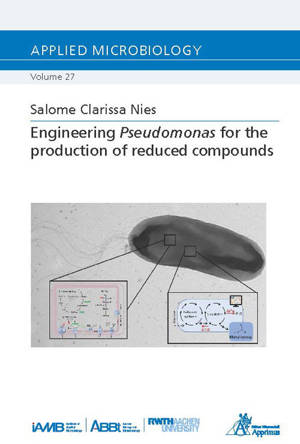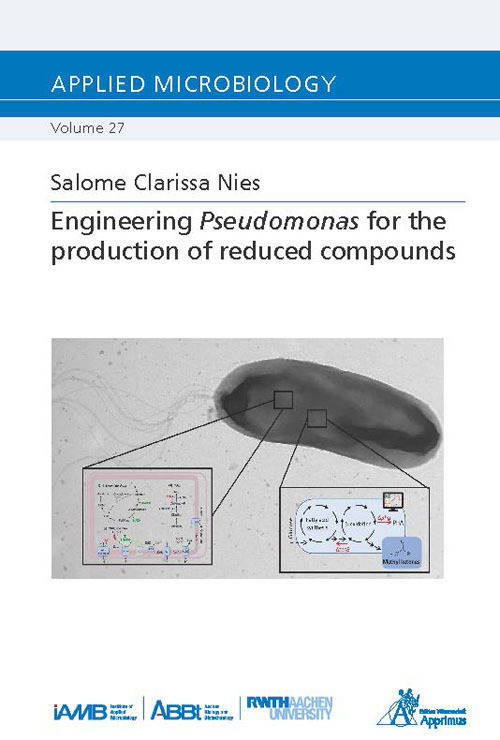
- Retrait gratuit dans votre magasin Club
- 7.000.000 titres dans notre catalogue
- Payer en toute sécurité
- Toujours un magasin près de chez vous
- Retrait gratuit dans votre magasin Club
- 7.000.0000 titres dans notre catalogue
- Payer en toute sécurité
- Toujours un magasin près de chez vous
Engineering Pseudomonas for the production of reduced compounds
Salome Clarissa Nies
38,45 €
+ 76 points
Description
Reduced compounds can be produced using metabolically engineered microbes, often relying on redox-cofactor-dependent biocatalysis. The prerequisite for outstanding performance requires a basic understanding of the redox metabolism of the production host, a simple redox chassis, and a target molecule for which a metabolic pathway exists. This thesis addresses these prerequisites using the obligate aerobe Pseudomonas taiwanensis VLB120.The essentiality of the three NADH dehydrogenases of the respiratory chain of P. taiwanensis VLB120 was investigated. A mutant lacking all three NADH dehydrogenases seemed inviable. The mutant deficient in type-2 dehydrogenases ( ndh) showed a clear phenotype with biphasic growth behavior and a strongly reduced growth rate. In-depth analyses of the metabolism revealed a redirection of metabolic fluxes through increased ROS formation in ndh with concomitant growth reduction. This metabolic flexibility maintained a stable, viable phenotype. The availability of NADH is critical for redox biocatalysis in an obligate aerobic bacterium. We established a redox chassis that potentially has more electrons for synthesis by reducing energy/electron consumption of the chassis. Deletion of the ATP-dependent ABC transporter and the polyhydroxyalkanoate synthesis operon were combined with the deletion mutants of NADH dehydrogenase for the redox chassis. The deletions showed a weak effect on phenotype. Hence, an NADH-consuming reaction to study the impact of each gene deletion is necessary. Methyl ketones were chosen as representatives of highly reduced platform chemicals. Published strategies resulted in 2.1 g Laq-1 methyl ketones in fed-batch fermentation. Further metabolic optimization motivated by metabolic modeling increased production by eliminating competing reactions to 9.8 g of Laq-1 methyl ketones (corresponding to 69.3 g of Lorg-1 in the in situ extraction phase), 53% of the maximum theoretical yield. This achievement represents a 4-fold improvement in product titer compared to the initial production strain and the highest titer of recombinantly produced methyl ketones reported to date. The potential Pseudomonas redox chassis evaluated the best methyl ketone production strategy. However, it produced 1.5-fold less than the best-published strain. The in-depth analysis and understanding of redox metabolism in P. taiwanensis allowed superior production of highly reduced chemicals, thereby contributing to the envisaged bioeconomy.
Spécifications
Parties prenantes
- Auteur(s) :
- Editeur:
Contenu
- Nombre de pages :
- 184
- Langue:
- Anglais
- Collection :
- Tome:
- n° 27
Caractéristiques
- EAN:
- 9783985550760
- Format:
- Livre broché
- Dimensions :
- 148 mm x 11 mm
- Poids :
- 350 g

Les avis
Nous publions uniquement les avis qui respectent les conditions requises. Consultez nos conditions pour les avis.






